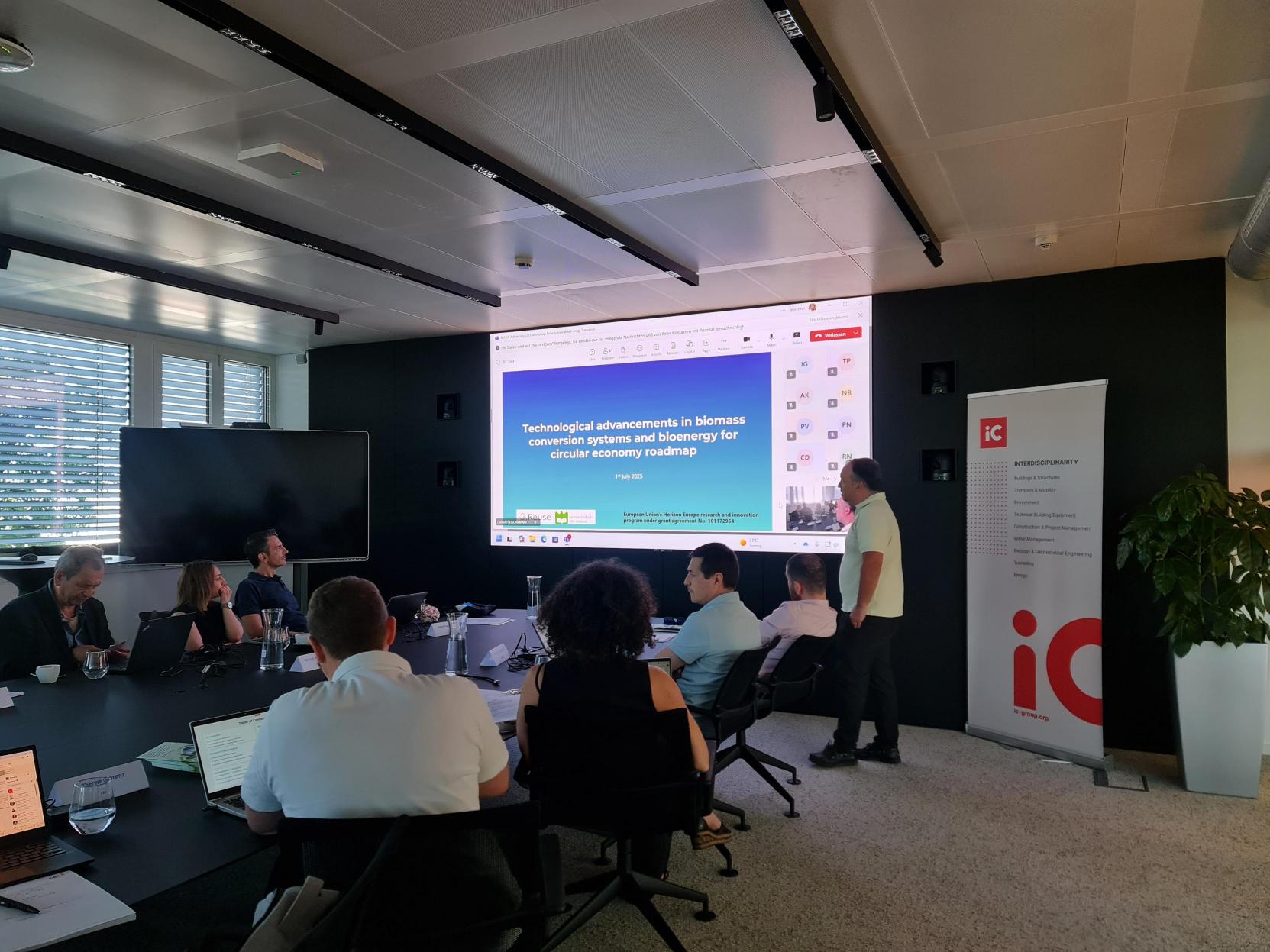On the afternoon of 1 July 2025, the Horizon Europe project REUSE—“Enzymatic CO₂ Capture in a Rotating Packed Bed and Electrocatalytic CO₂ Reduction to Useful Products”—held its first Exploitation Workshop at the Clean Energy Solutions (CES) headquarters in Vienna, Austria. The event welcomed participation from the full project consortium and 30 external stakeholders who joined virtually, demonstrating the growing interest in REUSE’s innovative low-carbon technologies.
Now entering its 9th month out of a 36-month project lifecycle, the REUSE consortium recognized the strategic importance of convening this first exploitation workshop. The goal was to align on the commercial and technological potential of the project’s outputs and identify promising avenues for future application and scale-up.
This workshop reaffirmed a critical principle: exploitation is not a task reserved for the end of the project, but rather a continuous process. In REUSE, exploitation has been embedded from day one through the Dissemination, Communication, and Exploitation work package—ensuring strategic thinking and engagement are built in throughout the entire project duration.
Dr. Athanasios Papadopoulos opened the session by highlighting biomass as a pivotal energy carrier in achieving the EU’s climate and energy targets. He underlined how combining sustainable biomass with carbon capture and utilization or storage (CCUS) systems can enable net-zero or even negative-emission solutions. He introduced REUSE’s core innovations, including Direct CO₂ Capture-CO₂R, the use of Rotating Packed Beds (RPB) for CO₂ absorption, a zero-gap electrocatalytic cell for reduction to formic acid, and integrated CO₂ that combine biomass gasification. These technologies represent critical building blocks for the project’s vision of scalable, circular carbon solutions.
Following this, Michael Heidenreich from TWB Research shared the project’s assessment of CCUS potential in former eastern EU countries. His presentation highlights a potential of 43 Mt CO₂ for utilization by 2025 with 429 possible plants; and evaluates pyrolysis and bioethanol processes for industrial integration (noting benefits like lower emissions, high CO₂ purity, and scalability. The findings also stressed the need for further, in-depth analysis to validate assumptions and identify optimal deployment pathways.
The workshop then shifted focus to the circular economy and technological progress. Dr. Valter Silva from Universidade de Aveiro presented advancements in biomass conversion systems, drawing distinctions between gasification, combustion, and pyrolysis. He outlined optimization strategies—including feedstock engineering, statistical experimental design, and computational modeling—and shared recent findings on co-gasification of RDF and biomass blends. Emphasis was placed on catalytic systems, emission-reduction methods, and future directions such as the integration of gasification with renewables, carbon capture, and hydrogen production.
Next, Prof. Jonathan Lee of Newcastle University shared institutional research on the performance and scale-up of Rotating Packed Beds (RPBs) for CO₂ capture. As the technological focus of the REUSE project, RPBs represent a core innovation in enabling intensified gas-liquid mass transfer. Prof. Lee’s insights helped position this technology within the broader field and addressed key engineering challenges associated with scaling from laboratory to industrial applications.
The final speaker, Prof. Dimitrios Tsiplakides, explored the techno-economic aspects of electrocatalytic CO₂ utilization. He walked through key processes, from direct CO₂ conversion to electrochemical reduction, examining factors influencing system performance and techno-economic viability. His presentation concluded with a realistic appraisal of current limitations and the long-term promise of CO₂ electroconversion technologies.
As REUSE moves into its next phase, this workshop marked an essential milestone in transforming technical innovations into viable exploitation pathways – be they commercial, social or politicy-driven. It provided the consortium a platform to validate technological maturity, engage stakeholders, and map out commercial prospects at earlier stage. The insights shared will directly inform the development of REUSE’s exploitation strategy, supporting both short-term demonstration and long-term impact planning.
Download the presentations from the workshop here:
- REUSE project overview
- CCUS and requirements in former eastern EU countries
- Technological advancements in biomass conversion systems and bioenergy for circular economy roadmap
- Rotating packed beds for CO2 capture – Technological status and economics
- Electrocatalytic processes for CO2 utilization – Techno-economic aspects and potentials

